In what appears to be a sophisticated, remote attack, pagers used by hundreds of members of Hezbollah exploded almost simultaneously in Lebanon and Syria Tuesday, killing at least nine people — including an 8-year-old girl — and wounding thousands more.
A U.S. official said Israel briefed the U.S. on the operation — in which small amounts of explosive secreted in the pagers were detonated — on Tuesday after it was concluded. The person spoke on the condition of anonymity because they were not authorized to discuss the information publicly.
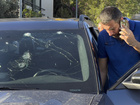 Full Story
Full Story
Hundreds of paging devices used by members of Hezbollah exploded across Lebanon in an attack that killed at least nine people, including a child, and wounded 2,800 more.
The blasts dealt a heavy blow to the group, which blamed its arch-foe Israel for the attack.
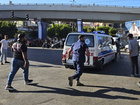 Full Story
Full Story
Western and Arab diplomats have relayed new Israeli warnings to the Lebanese government, saying that “the Israeli government can no longer remain idle over what’s happening in its northern regions” and that it is “cornered” due to “pressures from the population, from key parties in the governmental coalition and from some security and military officials,” a media report said.
 Full Story
Full Story
Once lauded for reviving Lebanon's economy, former central bank chief Riad Salameh -- wanted abroad and reviled at home after years of financial meltdown -- was arrested on Tuesday by Lebanese authorities.
The 74-year-old French-Lebanese national is widely viewed as a key culprit in the country's dramatic economic crash, which the World Bank has called one of the worst in recent history.
 Full Story
Full Story
Israelis were plunged into grief and anger this weekend after the military said six hostages were killed by their captors in Gaza just as troops were closing in on their location. The rage sparked massive protests and a general strike — the most intense domestic pressure on Israeli Prime Minister Benjamin Netanyahu since the start of the war nearly 11 months ago.
Many Israelis blame Netanyahu for the mounting number of dead hostages and are calling for a cease-fire agreement to free the remaining roughly 100 captives — even if that means ending the conflict. Sunday's demonstrations were the largest show of support for a hostage deal since Oct. 7, when Hamas-led militants stormed into Israel and kidnapped 250 people.
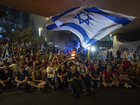 Full Story
Full Story
Israel is carrying out large-scale military raids in parts of the occupied West Bank, where the decadeslong conflict with the Palestinians had worsened even before the outbreak of the war in Gaza.
Israel says the operation, which appeared to be the largest since the start of the war, is aimed at preventing attacks on its citizens. Palestinians view such raids as part of an effort to cement Israeli control over the territory, where 3 million Palestinians live under military rule.
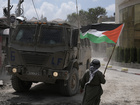 Full Story
Full Story
The latest flurry of Gaza cease-fire talks — the back-and-forth over now-familiar sticking points and appeals from around the world — obscures a grim truth about the monthslong efforts to end the Israeli war on Gaza and free scores of hostages.
Any deal requires the signatures of two men: Israeli Prime Minister Benjamin Netanyahu and Hamas leader Yahya Sinwar.
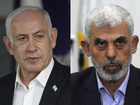 Full Story
Full Story
Despite a flare-up in violence between Israel and Hezbollah on Sunday, both sides appeared to show restraint, averting all-out war amid 10 months of clashes on the Israel-Lebanon border.
AFP looks at what happened and whether the chance of a broader regional conflict still looms as the Gaza war grinds on.
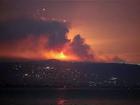 Full Story
Full Story
Israel and Hezbollah pulled back after an exchange of heavy fire over the weekend that briefly raised fears of an all-out war.
But their decades-long conflict is far from over, regional tensions linked to the war in Gaza are still high, and it's probably only a matter of time before another escalation.
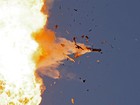 Full Story
Full Story
After an escalation of hostilities Sunday amid over 10 months of cross-border clashes between Israel and Hezbollah, here are the major eruptions of violence since their 2006 war.
The devastating month-long war in the summer of 2006 cost Lebanon more than 1,200 lives, mostly civilians, while some 160 Israelis were killed, mostly soldiers.
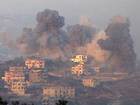 Full Story
Full Story



